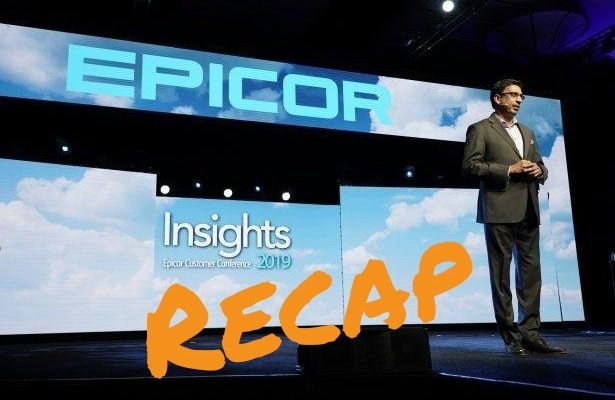The recent Financial Service Network (FSN) survey on Planning, Budgeting, and Forecasting (PBF) showed two key characteristics for those organizations that produced the most insightful financial forecasts. First, was the ability to leverage non-financial data. Second, was the application of advanced analytics. We will look at how the most successful organizations expand their vision beyond the narrow financial view of the future to produce more valuable foresight in their PBF processes.
Finance: The Home of Truth
The financial component of enterprise resource planning, whether part of a full-fledged ERP system or a mom-and-pop shop running Quickbooks, has historically been the ‘home of truth’. Finance was where everyone turned for answers since the only quantitative test of performance and sustainability was the P&L and the balance sheet. Finance largely birthed the IT function in a bid to automate the production of some of these answers. Most famously, in the production of payroll. Despite this, finance has now lagged in technology investment for some years, being overtaken by marketing, sales, and operations.
With new technology at their fingertips and an increasingly scientific approach, other functions in the business have begun to answer their questions, collecting and analyzing their data. The numbers in marketing may still be a little hazier than in finance but marketing has begun to offer insight into things that finance cannot, or has not. Market trends and consumer behavior tell leaders not just about what is but what might be. This forward-looking insight has often contrasted with finance’s view of the future.
The Past, Give or Take
Finance’s view of tomorrow has, by contrast, been rather singular in its source – the past. Predictions of tomorrow have been based on the evidence of the most recent year, with management’s desire for growth most often being the biggest factor steering the positivity, or otherwise, the forecast for the year ahead. Only negative macro factors have dissuaded forecasters from positivity about the bottom line and all the pressure that brings to bear on sales for revenue growth and operations for ever greater efficiency.
The figures from FSN’s report might suggest this had changed. 72% of finance leaders say their forecasting processes are now inclusive, drawing on sources from across the company, but dig further into the figures and this starts to feel more like an aspiration than a reality.
78% of the senior finance executives surveyed agreed that greater use of non-financial data is the best way to improve their PBF process and outcomes. 76% recognized the importance of connecting with more stakeholders from outside of the finance function to improve the accuracy of forecasts. The need to connect with other functions and share data is acknowledged.
But 74% say they are struggling to identify all relevant non-financial data sources. Why? Over 55% of respondents say that the lack of involvement of non-finance personnel is amongst the greatest barriers to forecast accuracy.
The obvious conclusion is that the connections between finance and the rest of the organization just aren’t there.
Additional Barriers
The lack of cross-cutting relationships through the business is not the only issue blocking the better application of non-financial data for improved forecasts. A quarter of respondents say their senior managers do not appreciate the value of non-financial data. And surprisingly, 23% delegate non-financial data tasks to more junior staff despite 43% of respondents ranking it in their top 3 sources of ‘most insightful data’.
Insightful it may be but there remain concerns about the quality of non-financial data when compared to the sources with which finance professionals are more familiar. 41% of CFOs are concerned about its integrity and believe it is less reliable than financial sources. This may well be true but these issues can be addressed, with appropriate weighting and analysis. The potential value of the data is clear, to ignore it would be nonsensical.
Taking Steps
So, how do finance leaders address these issues to improve insight into their planning, budgeting, and forecasting?
Relationships across the business rely on reciprocation and communication, not just shared goals. Finance has to be able to bring value to the other functions of the business if it is going to extract value back.
That value comes from the insight finance can bring. Most functions in the business are seeking better analysis of their situation and environment, and finance should have the skills to deliver that.
That comes with a time penalty of course but increasing automation of the base functions of finance should be releasing resources. This is a great way to apply the released resources to improve results.
Relationships will be hard to build without the soft skills of communication, and this is another area where finance has historically fallen. In our interactions with younger members of finance teams, we consistently find a lack of training on offer in anything beyond technical skills. This frustrates the ambitious and leads them to move on. Training then offers a two-fold benefit to the business: better collaboration and a greater chance of retention.
This isn’t to say technical skills aren’t important. Finance leaders need to be constantly up-skilling their teams in planning and analysis, and equipping them with the right tools to apply their learning. Then, they can efficiently integrate non-financial data into their models, improving forecasts and returning value to the other business functions.
As FSN says in its report, “Mastering non-financial data is the key to being able to forecast accurately and further into the future.” The only way to do this is to enhance the relationships that finance holds across the organization, by investing in the skills of its people.
For more information on ERP and the future of financial systems, read the FSN report on the topic – HERE
About Prophix
Prophix develops innovative software that automates critical financial processes such as budgeting, planning, consolidation, and reporting — improving a company’s profitability and minimizing its risks. Thousands of forward-looking organizations in more than 90 countries use software from Prophix to gain increased visibility and insight into their business performance.
About Encompass Solutions
Encompass Solutions is a business and software consulting firm that specializes in ERP systems, EDI, and Managed Services support for Manufacturers and Distributors. Serving small and medium-sized businesses since 2001, Encompass modernizes operations and automates processes for hundreds of customers across the globe. Whether undertaking full-scale implementation, integration, and renovation of existing systems, Encompass provides a specialized approach to every client’s needs. By identifying customer requirements and addressing them with the right solutions, we ensure our clients are equipped to match the pace of the Industry.





